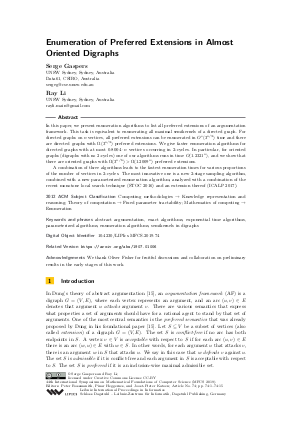LIPIcs.MFCS.2019.74.pdf
- Filesize: 0.53 MB
- 15 pages

 Creative Commons Attribution 3.0 Unported license
Creative Commons Attribution 3.0 Unported license





























Feedback for Dagstuhl Publishing